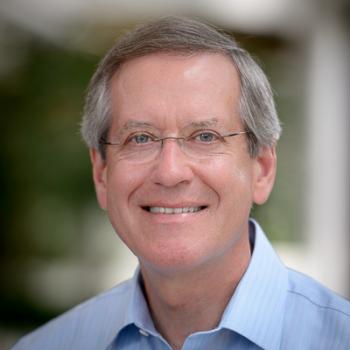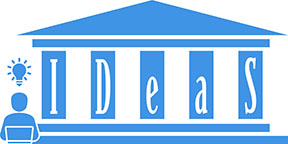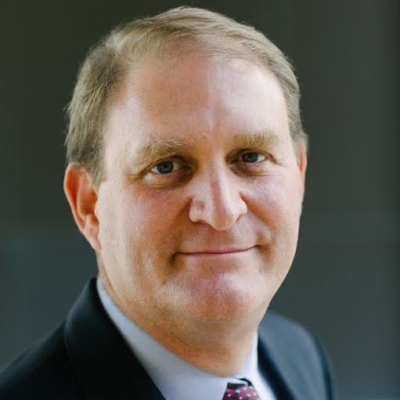2023 IDeaS Conference
Disinformation, Hate Speech, and Extremism Online
Annual IDeaS Conference: Disinformation, Hate Speech, and Extremism Online
September 20-22, 2023 Carnegie Mellon Univeristy, Pittsburgh, PA
Natural disasters, elections, climate changes, insurrections, pandemics, and new technologies are rocking the world. People talk about events, both these massive ones and much smaller ones, on line. Social media platforms, search engines and websites have become the window through which these events are viewed and interpreted. Those on social media seek and shape information, build and join communities, often with impacts in the physical world. One consequence is an online breeding ground for growing and disseminating disinformation, hate speech and extremism. In this conference we ask: How is this done? Who is doing it? Why is it being done? What are the social consequences? How can it be countered?
IDeaS will host a hybrid conference on disinformation, hate speech, and extremism online in September 2023. This conference aims to advance the science of social-cybersecurity through research and applications in this area.
We invite papers that address questions related to disinformation, hate speech and extremism on line. We are particularly interested in papers that touch on the role that disinformation, hate speech and extremism are playing in events such as the vaccine roll out, presidential elections around the world, civil conflict, and community resilience. Policy, empirical, qualitative, data science and simulation papers are of equal interest.
The conference will include: invited panels, posters, and regular talks. There will also be the opportunity for those interested to demo their technologies.
Registration
Participants and speakers can attend virtually or in-person at Carnegie Mellon University in Gates/Hillman Center located at 4902 Forbes Ave., Pittsburgh, PA 15213. We will be using the conference app Whova, for all participants in-person and attending virtually to connect, view sessions and network. Links will be sent to those registered 1-2 weeks prior to the conference to create your profile.
We are using RegPacks registration system to register conference participants. Use the link below to register.
**Registration is now closed, see you in 2024!
Keynote Speakers
Wednesday September 20, 2023
Nathaniel Persily
Democracy and Elections in the Age of AI
Nathaniel Persily is the James B. McClatchy Professor of Law at Stanford Law School, with appointments in the departments of Political Science, Communication, and FSI. Prior to joining Stanford, Professor Persily taught at Columbia and the University of Pennsylvania Law School, and as a visiting professor at Harvard, NYU, Princeton, the University of Amsterdam, and the University of Melbourne. Professor Persily’s scholarship and legal practice focus on American election law or what is sometimes called the “law of democracy,” which addresses issues such as voting rights, political parties, campaign finance, redistricting, and election administration. He has served as a special master or court-appointed expert to craft congressional or legislative districting plans for Georgia, Maryland, Connecticut, New York, North Carolina, and Pennsylvania. He also served as the Senior Research Director for the Presidential Commission on Election Administration. In addition to dozens of articles (many of which have been cited by the Supreme Court) on the legal regulation of political parties, issues surrounding the census and redistricting process, voting rights, and campaign finance reform, Professor Persily is coauthor of the leading election law casebook, The Law of Democracy (Foundation Press, 5th ed., 2016), with Samuel Issacharoff, Pamela Karlan, and Richard Pildes. His current work, for which he has been honored as a Guggenheim Fellow, Andrew Carnegie Fellow, and a Fellow at the Center for Advanced Study in the Behavioral Sciences, examines the impact of changing technology on political communication, campaigns, and election administration. He is codirector of the Stanford Cyber Policy Center, Stanford Program on Democracy and the Internet, and the Stanford-MIT Healthy Elections Project, which supported local election officials in taking the necessary steps during the COVID-19 pandemic to provide safe voting options for the 2020 election. He is also a member of the American Academy of Arts and Sciences, and a commissioner on the Kofi Annan Commission on Elections and Democracy in the Digital Age. He received a B.A. and M.A. in political science from Yale (1992); a J.D. from Stanford (1998) where he was President of the Stanford Law Review, and a Ph.D. in political science from U.C. Berkeley in 2002.
Thursday September 21, 2023
Charles M. Macal, Ph.D.
Challenges in Modeling the COVID-19 Pandemic and Behavior

Charles Macal applies computational modeling and simulation tools to complex systems to solve problems in a variety of fields, including energy and national security.
He is the chief scientist for the Argonne Resilient Infrastructure Initiative, and is a principal investigator for the development of the widely used Repast agent-based modeling toolkit.
He has Appointments at the University of Chicago Computation Institute and the Northwestern-Argonne Institute for Science and Engineering. He is adjunct professor at the University of Chicago, where he teaches a course on Complex Adaptive Systems for Threat Management and Emergency Preparedness.
He is a registered professional engineer in the State of Illinois and holds software copyrights for two systems: ELIST (Enhanced Logistics Intra-theater Support Tool) and EMCAS (Electricity Market Complex Adaptive System).
Agenda
Abstracts and full papers will be posted for the conference on Whova for those whoa re registered. Select papers and posters will also be posted online after the conference. Lunch will be provided to in-person participants each day of the conference. We will also have receptions the evenings of September 20th and 21st that all in-person participants are welcomed to attend. This year's conference is co-located with the 2023 SBP-BRiMS conference.
*agenda is tentative and subject to change
Wednesday September 20th
| 8:15am | Registration Opens | |||||||||
| 8:30am-11:00am | Tutorial - Muhammad Aurangzeb Ahmad & Ankur Teredesai, "Algorithmic Nudging in Healthcare" | |||||||||
| 9:00am-10:30am | Session 1 | |||||||||
|
||||||||||
| 10:30am - 11:00am | BREAK | |||||||||
| 11:00am - 1:00pm |
Panel: Simulation Challenges with Human-Machine Teaming There are myriad problems with simulation centered around human-machine teaming that can be explored. This is a challenge that many United States government research organizations have taken interest in. The 711th Human Performance Wing at The Air Force Research Laboratory is continuously funding modeling and simulation efforts to increase fidelity for computer systems that assist military members with core tasks. Examples include cyber security awareness, special operations training, and flight simulators. Recent advances in our understanding of collective intelligence inform ways to best design beneficial interactions between human-machine teams. Team makeup will also impact performance with variables such as size, structure and demographics playing key roles. All of these research areas can be aided with simulations of theoretical constructs, validated with observations, and applied to the field of human-machine teaming. This panel is timely as challenges in human machine teaming are prevalent across society. The panel members all have interests and expertise spanning sociology, organizational behavior, teaming, AI, and simulation. Discussions will center around how to represent human behaviors in simulation as it relates to advancing organizational and team performance. Moderator: Geoff Dobson Panel Speakers: Anita Woolley Lingfei Wu Joseph Lyons Dustin Updyke |
|||||||||
| 1:00pm-2:00pm | LUNCH | |||||||||
| 2:00pm-3:30pm | Session 3 | |||||||||
|
||||||||||
| 3:30pm-4:00pm | BREAK | |||||||||
| 4:00pm-5:00pm | Technology Demos | |||||||||
| 5:00pm-6:00pm | KEYNOTE - Nathaniel Persily | |||||||||
| 6:00pm-7:30pm | Reception and IDeaS poster session |
Thursday September 21st
| 8:15am | Registration Opens | |||||||||||
| 8:30am-11:00am | Tutorial - Frank Ritter, "How to Publish/Evaluate your Model" | |||||||||||
| 9:00am-10:30am | Session 1 | |||||||||||
|
|
|
|||||||||||
| 10:30am - 11:00am | BREAK | |||||||||||
| 11:00am - 1:00pm |
Panel: Humananistic Artificial Agents Artificial agents are increasingly deployed in demanding public settings, and created ever more capable to take action both with people and independently on behalf of them. In granting these machines such autonomy, how can we assure that they do the right thing over the wrong, to us and for us? Insofar as ethics is concerned with systematizing respectful conduct, they are central to any conceptualization of teamwork around shared interests, no less for teams including artificial agents of our own design. A common misunderstanding of ethics is that they simply aim to restrict our behavior and that which we develop in our machine counterparts. In fact, ethics mean to offer positive guidance on how to social engineer cooperative interaction for mutual benefit. Humanistic artificial agents act in accordance with our ethical principles – more than just performing tasks in our stead, they serve to benefit our interests. The techniques needed to address the ethical issues surrounding artificial intelligence and autonomous systems necessarily vary according to the principles they seek to uphold. Just in the past year, a chess bot crushed a child’s finger at a match, autopiloted cars ran into motorcyclists at night, and a chatbot was implicated in a suicide. Designers of these machines tend to address such incidents through a patchwork of ad hoc solutions. While this whack-a-mole strategy effectively treats the symptoms, it belies their root cause: these machines do not take into account in their decision-making the ethical ramifications of the actions they take. In the years to come, artificial agent activity will be ever more pervasive and impactful. To keep up, humanity must devise and organize principled ways to preempt and redirect machine behaviors that lead to unethical outcomes.
Panelists:
|
|||||||||||
| 1:00pm-2:00pm | LUNCH | |||||||||||
| 2:00pm-3:30pm | Session 3 | |||||||||||
|
||||||||||||
| 3:30pm-4:00pm | BREAK | |||||||||||
| 4:00pm-5:30pm | KEYNOTE - Charles 'Chic' Macal | |||||||||||
| 5:30pm-7:00pm | Reception and SBP-BRiMS poster session |
Friday September 22nd
| 8:15am | Registration Opens | |||||||||
| 8:30am-11:00am | Tutorial - Jeffrey Reminga, "ORA and Information Operations" | |||||||||
| 9:00am-10:30am | Session 1 | |||||||||
|
||||||||||
| 10:30am-11:00am | BREAK | |||||||||
| 11:00am-1:00pm | Session 2 | |||||||||
|
|
|
|||||||||
| 1:00pm-2:00pm | LUNCH | |||||||||
| 2:00pm-3:30pm | Session 3 | |||||||||
|
||||||||||
| 3:30pm-4:00pm | Awards and Farewell |
Presenter Information
**submissions for this year's event are now closed. If you are interested in submitting, please email centerforideas@andrew.cmu.edu.
Relevant Dates for Presenters:
Paper, demo and poster proposal submission: June 23, 2023
Author Notifcation: NEW DATE July 21, 2023 (updated from July 10th, all authors, accepted or rejected will be notified)
Final Version for Conference: September 8, 2023
Notification for extended version for Journal: July 24, 2023
Final camera ready submission for Journal: October 23, 2023
Paper Submission Guidelines
The papers must be in English and MUST be formatted according to the Springer-Verlag LNCS/LNAI guidelines. View sample LaTeX2e and WORD files and instructions here. All regular paper submissions should be submitted as a paper with a maximum of 6 pages. Total page count includes all figures, tables, and references.
Presentations
For Talks:
Talks will be 20 minutes (15 + 5 for questions). I try to keep to under a dozen slides, but everyone has their own style. If you plan on being virtual, we do expect live talks but we ask for a pre-taped version to be sent to us ahead of time in case of technical/connection issues during the conference. Details on recording your talk(s) are below. We ask for a download link to your talks to be sent to us by 15-Sep.
For Posters:
In-Person posters will be on Wednesday 20-Sep during the evening reception (6pm-7:30pm). Posters should be roughly 3'x4' or 4'x3'.
For Demos:
You will have access to present and demo your tool from your own computer. A table will also be provided. The demo session will follow regualr session on Wednesday September 20th prior to the welcome reception. If you need specialized equipment or are concerned about the connections, please reach out to centerforideas@andrew.cmu.edu.
Recording Instructions (Virtual Presenters):
Please record your full or lightning talk using MS PowerPoint Slide Show format (.ppsx) or any presentation screen recording with the MP4 file format.
This link can help you record your slideshow: https://support.office.com/en-us/article/record-a-slide-show-with-narration-and-slide-timings-0b9502c6-5f6c-40ae-b1e7-e47d8741161c
**For full talks, if your file size exceeds 40MB, please reduce the size using the following link: https://www.xconvert.com/compress-mp4 .
Logistics Information
We have a courtesy block available for those attending in-person and looking for hotel accomodations. The rooms are $179/night and government rates are also available.
Hilton Garden Inn - Pittsburgh University Place
3454 Forbes Avenue, Pittsburgh, PA 15213
CMU- IDeaS Conference (hilton.com)
Parking: The closest parking lot to Gates Hillman Centers is in the building. You can find information about parking at CMU campus at the link, https://www.cmu.edu/parking/park/visitor.html.

